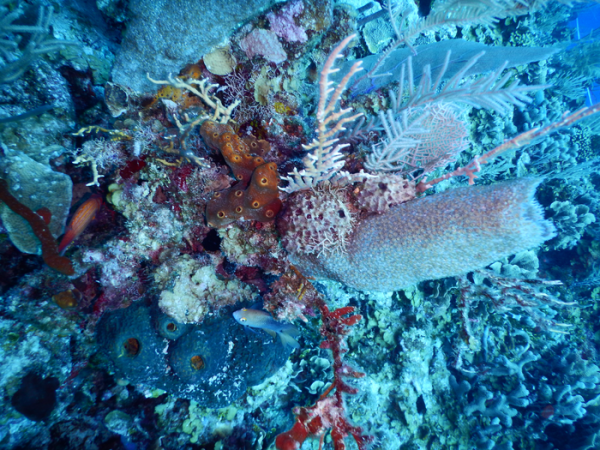Sponges in coral reefs, less flashy than their coral neighbors but important to the overall health of reefs, are among the earliest animals on the planet. New research from UNH peers into coral reef ecosystems with a novel approach to understanding the complex evolution of sponges and the microbes that live in symbiosis with them. With this “genomic time machine,” researchers can predict aspects of reef and ocean ecosystems through hundreds of millions of years of dramatic evolutionary change.
“This study shows how microbiomes have evolved in a group of organisms over 700 million years old,” says Sabrina Pankey, a postdoctoral researcher at UNH and lead author of the study, published recently in the journal Nature Ecology & Evolution. “Sponges are increasing in abundance on reefs in response to climate change and they play an enormous role in water quality and nutrient fixation.”
The significance of the work transcends sponges, though, providing a new approach to understanding the past based on genomics. “If we can reconstruct the evolutionary history of complex microbial communities like this we can say a lot about the Earth’s past,” says study co-author David Plachetzki, associate professor of molecular, cellular and biomedical sciences at UNH. “Research like this could reveal aspects of the chemical composition of the Earth’s oceans going back to before modern coral reefs even existed, or it could provide insights on the tumult that marine ecosystems experienced in the aftermath of the greatest extinction in history that took place about 252 million years ago.”
Read more at University of New Hampshire
Image: Sponges with different symbiotic strategies commonly co-exist and thrive in reefs, providing valuable ecosystem services. (Credit: Photo courtesy of Sabrina Pankey)


